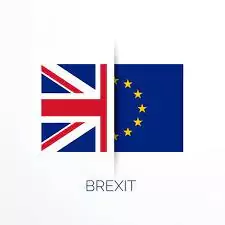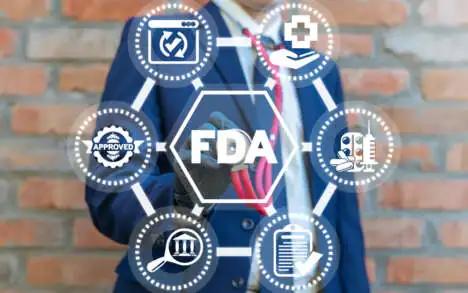Brexit – Impact, Challenges, and Solutions for the Pharmaceutical Industry.
Brexit has provided several challenges to the pharmaceutical industry that required robust actions and swift resolution in order to remain in compliance following the end of the transition phase.
At the ‘Brexit – Impact, Challenges, and Solutions for the Pharmaceutical Industry’ Conference we heard from companies expressing their need a for a clear action plan to map out the activities, timings and responsibilities for these changes including those licencing activities, manufacturing, QP release and supply routes.
Focussing on the regulatory activities, the following are some of the challenges faced by companies and the steps taken by the UK Regulator, the MHRA, and UK Department of Health and Social Care, in order to provide solutions to marketing authorisation review and access to medicines:
Regulatory Challenges
Following Brexit, regulatory oversight in the UK has shifted from the EMA to the MHRA, for what were European procedures, with the work of the multinational agency now falling to the MHRA. One would; therefore, question capacity and anticipate resource issues.
For companies, lack of published guidance, or guidance that is published very late, has provided issues for training, compliance and updating of internal procedures. There is a continued reliance on existing EU forms and systems, and with separation of European procedures from Great Britain, there is a duplication of effort which stretches the capacity of already finite regulatory resource.
This has increased the risk of potential delays to submissions and approval in Great Britain and Northern Ireland. In addition, there is the potential for reduced supply of medicines to NI.
UK Marketing Authorisations – for existing products
All existing Centrally Authorised (CAP) MAs were automatically converted into UK MAs effective in Great Britain (England, Scotland and Wales only) and were issued with a new MA number on 1 January 2021 (with a format of PL GB) unless the MHRA were otherwise advised. This was a process referred to as ‘Grandfathering’.
Companies submitted initiating sequences, with baseline data, for the new GB only grandfathered product by the end of 2021. This was a large resource burden on regulatory departments to collate these data and create a new baseline. This created a particular issue for historic products, where data may not have a readily available in CTD format, or was archived and not digitised. The MHRA took a pragmatic approach and requested companies provide as complete a dossier as possible, and that companies make all ‘reasonable endeavours’ to do so.
As a result of the implementation of the Northern Ireland Protocol, existing CAPs remain valid for marketing products in Northern Ireland. Future EU marketing Authorisations will continue to include Northern Ireland.
This has essentially created 2 parallel licences: one for the EU, including Northern Ireland, and a new separate GB only licence. Although there was no fee for the grandfathering process, as with all UK national MAs, an annual service fee is due for converted EU MAs.
Existing Nationally Authorised MAs continue as pre-Brexit and the MHRA presented options for managing MR/DC Procedures.
European Commission (EC) Decision Reliance Procedure – ECDRP
New GB MAs can follow CAP procedures, utilising the EU Reliance Route. This was effective until the end of 2022, but as a post meeting note, has now been extended by another year until the end of 2023.
Companies can wait until the product has received a positive opinion from the CHMP. The Application will be determined when the EC decision has been confirmed. The published guidance states a 67 day process thereafter to obtain a GB only MA, but in practice this is likely to be longer due to resource constraints at the MHRA to start the procedure and any potential requests for further information.
This EU Reliance Route has been used extensively for products falling under the Centralised Licence Categorisation post-Brexit.
UK/GB national variations continue to follow current EC variations regulation.
Variations to purely national MAs (PL, PLGB and PLNI) can also be presented to the MHRA under the reliance route. Companies can submit either by national only or reliance route for the Type II and Type IB variations, but Type IA variations cannot rely on the EMA decision so should be submitted to the MHRA in parallel to the EMA.
For those Type IB and Type II variations submitted according to the reliance route procedure, provided the variation is identical to that approved for the European MA, and evidence of this is included with the submission, the CAP variation approval will be taken into consideration during the assessment process.
A lower fee will be charged for reliance variations as less assessment is required. The MHRA are actively encouraging the use of reliance procedure for variations to reduce workload and speed up approval process. This will reduce divergence between the CAP MA and GB MA, which is a general concern of companies where there may be an inevitable regulatory drift between the EU and GB.
Decentralised and Mutual Recognition Reliance procedure for New MAs
For new applications, the MHRA can use approval of Marketing Authorisations submitted via Mutual Recognition or Decentralised procedures in EU member states with a view to granting the MA in the UK or GB.
This route is called the MRDC Reliance Procedure – MRDCRP. The MAH submits the MRP/DCP MAA as usual, thereafter once approval is received the entire dossier is then submitted to the MHRA via the MHRA submissions platform. As with the EC Reliance Route, the published timelines state 67 Day Approval Timeframe.
For existing MRP or DCP products, MAHs have the choice as to how to manage their MAs;
- A. Maintain a UK-wide Marketing Authorisation and retain UK(NI) (the UK in respect of Northern Ireland) as a CMS. In this case, the Authorisation will continue to be a UK-wide MA with Northern Ireland as a CMS and Great Britain aligned with, but not part of, the DCP/MRP. This is be the default position and no action is needed to be taken by the MAH.
- B. Request that separate MAs are issued for UK(NI) as a CMS, and Great Britain (England, Wales and Scotland)
- C. Notify the UK and the RMS (reference member state) in writing that they wish to remove UK(NI) as a CMS from the DCP/MRP and maintain a national MA in Great Britain only.
For licenses maintaining the default option ‘A’, variations may continue to be submitted and managed as part of the relevant MR/DC procedure with NI as CMS to maintain a UK wide authorisation.
The RMS will communicate the outcome of the procedure directly to the MHRA. There is a 30 day period where the MHRA can reject the RMS decision relating to those variations where CMS input is expected (primarily major Type II variations). In reality, the MHRA has communicated that they will accept RMS approval for all variation submissions, including those with UK specific product information updates.
National Licences – New MAA Routes
The MHRA have provided new types of assessment pathways in order to help expedite approvals and facilitate access for innovative medicines; these include:
- National Procedure – which allows for a 150 day national assessment. This is for high quality MAAs. If the application includes Northern Ireland, then it must comply with EU requirements.
- Rolling review – where the MAA is submitted in increments for pre-assessment, prior to the final assessment stage. This is intended to streamline development of novel medicines allowing various elements of regulatory data to be reviewed separately.
- Innovative Licensing and Access Procedure (ILAP) – aims to accelerate the time to market and facilitate access for innovative medicines
Northern Ireland:
The Unfettered Access Procedure (UAP) allows for MAs approved in Northern Ireland via European procedures (centralised, mutual recognition or decentralised procedures), or via the Northern Ireland National route, to be recognised by the MHRA for Great Britain (England, Scotland and Wales)
Marketing Authorisation Applications (MAAs) made through the Unfettered Access Procedure (UAP) should be agreed within 67 days of MAA validation, unless major objections are identified.
It seems likely that this strategy will take the place of the current ECDRP (although this reliance route has been extended).
It was noted that there have been over one thousand products set to ‘not marketed in Northern Ireland’. The new Northern Ireland MHRA Authorised Route (NIMAR) provides a route for the lawful supply of Prescription Only Medicines (POMs) in compliance with UK and EU rules, where there is a risk that clinical need in NI for that product cannot be met.
This supply route has been designed to ensure that people in Northern Ireland (NI) can continue to access prescription-only medicines (POMs) should clinical need be unable to be met through authorised products or any other existing regulatory routes.
MHRA International Collaborations
The MHRA are extending their collaborations with international Health Authorities. Two examples are:
Project Orbis
One of the MHRA’s main priorities is to accelerate access to medicines in the UK in the aftermath of Brexit and they have implemented a framework for concurrent submission and review of oncology products.
This initiative aims to deliver faster patient access to innovative cancer treatments with potential benefits over existing therapies. Whilst coordinated by the FDA. it is open to MHRA, Australia (TGA), Canada (Health Canada), Singapore (HAS), Switzerland (Swissmedic) and Brazil (ANVISA), with each country remaining fully independent on their final regulatory decision.
Access Consortium (Previously known as ACSS)
The Access Consortium (Previously known as ACSS), is a further work-sharing initiative between MHRA, TGA (Australia), Health Canada, HAS (Singapore) and Swissmedic. Not all authorities have to be included and those who are will maintain their own sovereign decision based on the recommendation in the Assessment Reports.
Currently, this pathway can offer Applicant’s three separate routes of authorisation:
- New Active Substance Work Sharing Initiative (NASWSI)
- Biosimilar Work Sharing Initiative (BSWSI)
- Generic Medicines Work Sharing Initiative (GMWSI)
Approval by one Authority does not guarantee approval by all.
In conclusion, the steps taken by the MHRA to create new and innovative licencing options, and to expand collaborations with international partners, are in an endeavour to mitigate the effects of leaving the European regulatory network.








